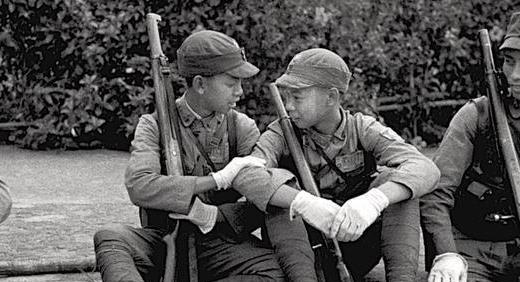The Battle of Wuhan was one of the large-scale battles that broke out between China and Japan in the early stages of the War of Resistance Against Japanese Aggression, in which the Nationalist army concentrated a total of the Fifth and Ninth Theaters, about 14 group armies, 50 armies, about 200 combat aircraft, more than 30 ships, and a total strength of nearly 1.1 million people. The Japanese army also invested nearly 10 divisions and regiments, about 400,000 people, and both sides exploded with amazing energy in order to compete for the central city of Wuhan.

Also at that time, the most worrying thing was Chiang Kai-shek, to know the strategic position of Wuhan, we can also see from today's map, as the thoroughfare of the south, north and south, the purpose of the Japanese army to try to capture Wuhan is self-evident, and the Chinese army since the War of Resistance, almost repeatedly defeated, the Battle of Songhu, the Battle of Nanjing, the Battle of Xuzhou, the Battle of Xinkou, basically every battle must be lost, in such a low morale situation, want to defend Wuhan, I am afraid that no one has a bottom in mind.
But it is not okay not to fight, after the loss of several important cities in the north and south, Wuhan has actually become the largest city in China at that time, many universities and factories in the occupied areas have been moved to Wuhan, in order to prevent the fall of Wuhan, these universities and factories fell into the hands of the enemy, a month before the start of the war, under the arrangement of the National Government, they all withdrew one after another, to put it bluntly, the Chinese in the Wuhan area, about to launch a bloody hand-to-hand combat with the Japanese army.
Except for the Madang Fortress, which was derelict in its duties and dereliction of duty by its commander Li Yunheng, the other units participating in the battle performed very well on the battlefield, especially the corps commanded by Xue Yue surrounded the regiment of the Japanese 106th Division at Wanjialing and won a major victory in the defense of Wanjialing.
A Japanese soldier on the front line recorded in his diary the tragic situation at the time of the Sino-Japanese Battle of Wuhan, and the position of his squadron was in a ditch surrounded by highlands, full of the remains of his companions, and because of the long-term melee, their supplies had long been unable to keep up, because of hunger and wounded countless comrades who died, for several days they could only scoop water from the pool soaking the bodies of their comrades, and at the same time, the bullets shot from all directions showed that they were surrounded by enemies, and they did not dare to move on the ground. The living are about to turn into ghosts, and they feel that their time of death is approaching.
All in all, this war is unprecedented cruelty, according to post-war statistics, the various participating troops suffered heavy losses, of which the Chinese army lost more than 400,000 people, and the Japanese army suffered heavy casualties, each company lost more than 40 people, but this war also marked that this war was dragged into a stage of protracted consumption, and the purpose of the Nationalist government to exchange space for time was achieved, laying the foundation for the later collapse of Japan.